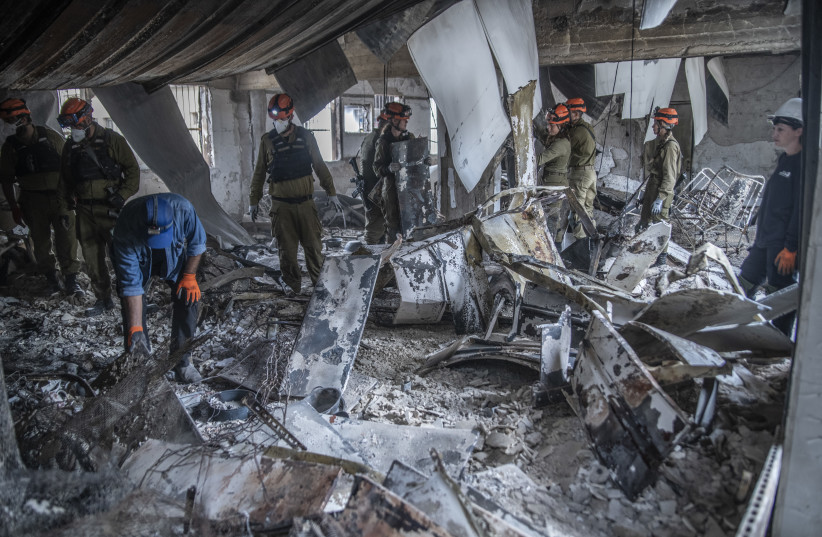Jamal Warraqi was among the first emergency rescuers to reach kibbutz Be'eri after Hamas terrorists rampaged through the community in southern Israel on Oct. 7, and the sight of slaughtered families and children is still seared into his memory.
More than a month later, the volunteer first responder remains visibly shaken as he recounts his rush to Be'eri in an ambulance and the bodies lying in the streets along the way.
Unlike most emergency workers called out that day, Warraqi is a Muslim Israeli Arab. He found his experience of Oct. 7 profoundly distressing, but says it also strengthened his belief that human beings must "stop hatred" and learn to live together.
Warraqi is a volunteer for Zaka, a non-governmental rescue and recovery service. Founded in 1995, Zaka is comprised mostly of ultra-religious Jews committed to ensuring that as much of the human body of every victim is buried in accordance with Jewish law. It also has Christian, Druze and Muslim volunteers.
"I saw families, they were slaughtered, a lot of families," Warraqi told Reuters, standing next to his ambulance.
"I saw a father and mom with three kids, they were tied hands up, hands back ... as they were put on their knees in front of each other, then they got shot in the head."

"When you see such a thing... you just start imagining what happened in there, what, how did they react, who was got killed first, the kids or the parents."
The destruction of Be'eri
In the peaceful and leafy Be'eri community, houses were burnt to the ground and families killed in their own houses with a brutality that Warraqi says "has nothing to do with Islam."
"Our religion, as a proud Arabic Muslim Israeli guy, I'm saying that has nothing to do with our religion," Warraqi said.
Be'eri was among the hardest hit communities by the Hamas assault on Oct. 7, which Israeli officials say killed 1,200 people, mostly civilians gunned down in their own homes, on the streets or at a dance festival. The attack was the deadliest in Israel's 75-year-old history.
Surviving residents were eventually evacuated and Israel has since launched a devastating bombardment and ground offensive against Hamas in Gaza that has killed more than 11,500 people.
Warraqi said many Muslims were also killed in the assault, recalling how he took care of two Arab women wearing hijab, shot by the attackers, and three Arab bus drivers from east Jerusalem who got shot in the head.
"That means that they're (Hamas) not doing this for the country or for religion, they're just doing this for the hatred," he said.
Warraqi is still hopeful that Jews, Arabs, Christians and Muslims can learn to live together in Israel, saying "we are all the same."
"I think Israel learned today how to die together. Now it's time to learn how to live together ... We have to take care of this and we have to stop hatred and start living together."
